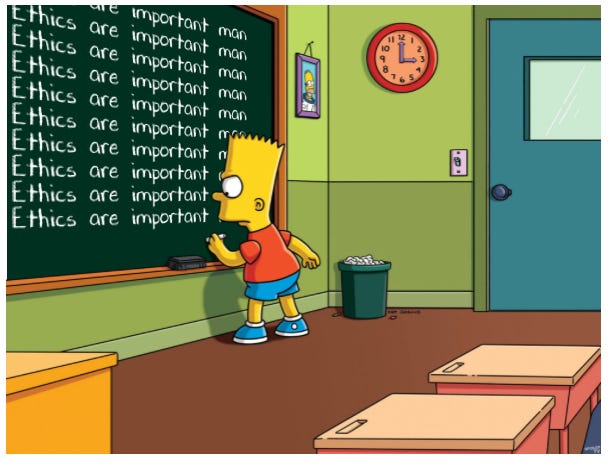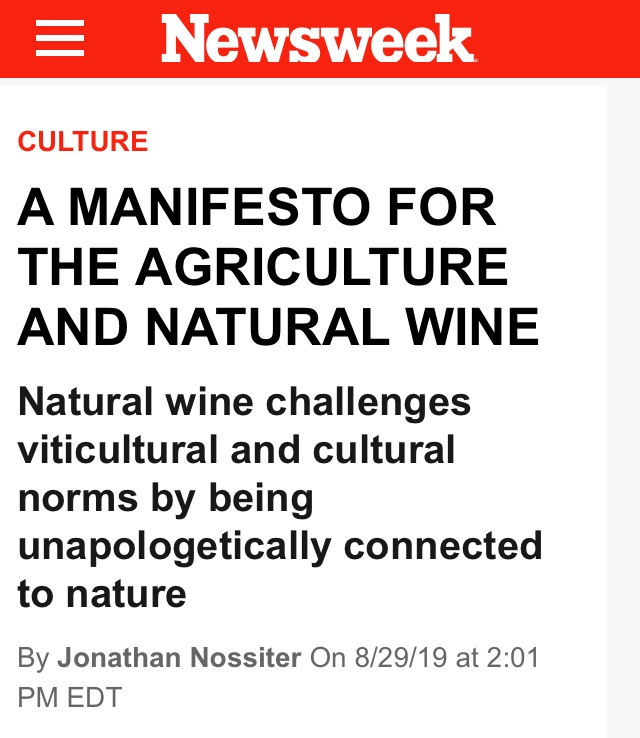The Ethics of Wine
I seek out natural and low-intervention wines because they align with my values. But everyone’s values are a lil’ bit different. Some wineries focus on environmental sustainability, others choose philanthropy, some are just looking to bring in the Benjamins; and some consumers want transparency, while some don’t. But just as I value getting my kale from the farmers market (because I know where it’s coming from and I can ask questions of the farmer), I now seek out the same for my wine. Below are some of the ways natural winemakers are helping us be more mindful about what we drink.

Embracing Agriculture. I never thought of wine as food until I was exposed to natural wine. Eric Asimov once wrote about how consumers have become more conscious about where their food comes from, but not so much for wine: “This blind spot has kept many consumers from asking questions about how their wine is made, even though they may be hyperconscious of the origins of the food they eat”. And just like food, wines can be processed, or as Asimov describes them: “assembly-line wines, farmed industrially with chemical sprays, churned out in factories with technology and machinery and additives”; versus more naturally made wines that are “pastoral expressions of an agricultural culture.” Jonathan Nossiter says that due to a few renegade producers who stayed true to their values and resisted “the siren call of chemically enslaved agriculture” - and who inspired others to do the same - natural winemakers are “leading a raucously civil and rootedly cosmopolitan insurrection against all the forces conspiring to wrestle the planet to death”.

Ethical Consumerism. More consumers want to buy ethically and sustainably produced products from companies that share their values. And wine is no exception. A recent report talked about the need for more “genuine progress in terms of developing sustainable and environmentally sound wine production techniques”. And this article about activist wines suggests that “wines with a conscience” are going from niche to mainstream. It provides examples of the philanthropic activities of some wineries (and touches on the environmental and social responsibility practices of a few others), which is all fine and good, but it seems to me that it’s the growing awareness of the work ethic of the renegades - often the smaller independent winemakers - who are primarily the ones behind the shift of bringing natural wine from niche to more mainstream.

Truth in Transparency. Most people don’t know what’s in their wine because there is no requirement to list ingredients or additives. Isabelle Legeron has been advocating for greater transparency for years; but there is a debate about how much information a label should include, from those suggesting a mandatory list of ingredients, to those who say “just add a paragraph explaining what it all means.” Food products in Canada are required to list ingredients and have a nutrition facts label. And as much as I may want the WineFacts™️, I don’t think such a rigid system would work for living wines that are “wholesome and full of naturally occurring microbiology”. But I do value and support winemakers who are transparently sharing how they make their ever changing wines and what’s in them.

Do you value ethics and weekly wine newsletters?


